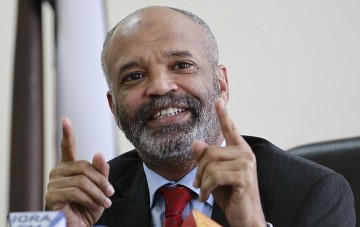Sudan softens its stance on Kenya’s warrant row
January 12, 2012 (KHARTOUM) – The Sudanese ambassador to Kenya Kamal Ismail Saeed announced today that a ruling made by a judge in Nairobi last year ordering the arrest of President Omer Hassan al-Bashir will not impact bilateral relations.

Saeed stressed that Sudan was determined to promote trade, economic and political relations with Kenya particularly in light of the crucial mediation role it played which led to the signing of the 2005 Comprehensive Peace Agreement (CPA) between Khartoum and the Sudan People’s Liberation Movement (SPLM) in South Sudan, which became an independent state last year.
“I highly appreciate the role played by the people of Kenya to bring peace and stability to Sudan. We pray that these efforts will bear fruit and hope that peace will prevail in our country,” Saeed said.
In November 2011 Kenyan high court judge Nicholas Ombija ordered the government to apprehend the Sudanese head of state should he visit the country.
This was to execute two arrest warrants issued by the International Criminal Court (ICC) for Bashir in 2009 and 2010 on ten counts of genocide, war crimes and crimes against humanity connected to the conflict in Sudan’s western region of Darfur.
Kenya is a member of the ICC but in August 2010 they allowed Bashir to visit without detaining him, drawing strong domestic and international criticism for breaching its obligations under the Rome Statute which is the founding text of the Hague-based court.
This prompted the Kenyan chapter of the International Commission of Jurists (ICJ) to move the issue to court, seeking an order forcing the government to execute the ICC warrants.
In reaction, Sudan expelled the Kenyan ambassador and recalled its own back from Nairobi. The decision was put on hold however, following a visit by Kenyan foreign minister Moses Wetangula to Khartoum to deliver a letter from the Kenyan President Mwai Kibaki.
When he returned, Wetangula said, Bashir had wanted to evict all Kenyans in Sudan, close the airspace for planes flying to Kenya and freeze bilateral trade. However he said that this was reversed after his meeting with the Sudanese leader.
But Sudan issued a statement shortly after the visit giving Kenya two weeks to have the decision reversed or it would proceed with sanctions. The deadline has passed without any action on Sudan’s part.
The Sudanese ambassador to Kenya said that the recent court ruling did not seriously damage relations between the two countries, adding that Kenya has agreed to abide by African Union (AU) resolutions ordering its member countries not to cooperate with the ICC with regards to Bashir.
“Despite ups and downs which were brought by the recent court ruling, the prospects of trade between Kenya and Sudan looks brighter,” Saeed said, adding that Khartoum was determined to improve its relations with neighbouring countries for the sake of peace.
The Kenyan government is awaiting a ruling on an appeal it submitted last month asking for a reversal of Justice Ombija’s ruling. Kenyan officials argue that Bashir enjoys full immunity under international law.
(ST)
